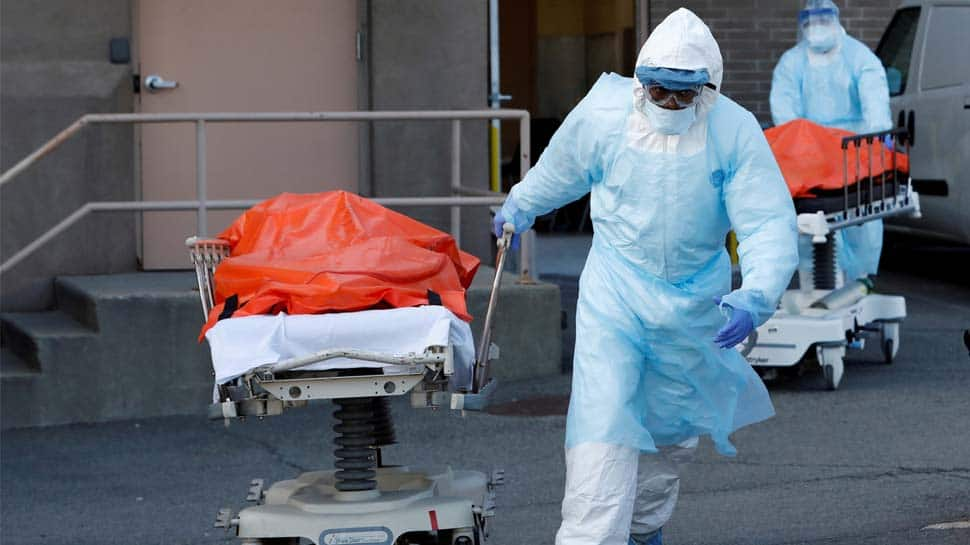The World Health Organization (WHO) on Friday warned nations about lifting coronavirus COVID-19 restrictions too quickly, adding that a sudden transition could spark a deadly resurgence. The WHO added that it is working with affected countries on strategies for the gradual and safe easing of restrictions.
Addressing a press brief, WHO Director-General Tedros Adhanom said, "I know that some countries are already planning the transition out of stay-at-home restrictions. WHO wants to see restrictions lifted as much as anyone. At the same time, lifting restrictions too quickly could lead to a deadly resurgence. The way down can be as dangerous as the way up if not managed properly. WHO is working with affected countries on strategies for gradually and safely easing restrictions."
The WHO directed that some important factors should be considered while lifting restrictions. "First, that transmission is controlled; second, that sufficient public health and medical services are available; third, that outbreak risks in special settings like long-term care facilities are minimized; fourth, that preventive measures are in place in workplaces, schools and other places where it’s essential for people to go; fifth, that importation risks can be managed; and sixth – and I cannot over-emphasize this point – that communities are fully aware and engaged in the transition," said Adhanom. He added that every single person has a role to play in ending this pandemic.
Adhanom expressed relief that UK Prime Minister Boris Johnson is no longer in intensive care. "On a personal note, I was pleased to see my friend Boris Johnson is no longer in intensive care. I wish him all the best – as I wish the best for everyone who is facing what he faced," he said.
He further said, "Globally, nearly 1.5 million confirmed cases of COVID-19 have now been reported to WHO, and more than 92,000 deaths. In the past week, we’ve seen a welcome slowing in some of the hardest-hit countries in Europe, like Spain, Italy, Germany and France."
Adhanom also added, "At the same time, we’ve seen an alarming acceleration in other countries. I want to take a moment to highlight Africa, where we are seeing the spread of the virus to rural areas. We are now seeing clusters of cases and community spread in more than 16 countries. We anticipate severe hardship for already overstretched health systems, particularly in rural areas, which normally lack the resources of those in cities."
He also expressed concern for the health workers. "We are particularly concerned by the large numbers of infections reported among health workers. In some countries, there are reports of more than 10 per cent of health workers being infected. This is an alarming trend. When health workers are at risk, we’re all at risk," said the WHO Director-General.
He added, "Evidence from China, Italy, Singapore, Spain and the United States is helping us to understand why this is happening, and what we can do about it. It shows that some health workers are actually being infected outside health facilities, in their homes or communities. Within health facilities, common problems are the late recognition of COVID-19 or lack of training or inexperience in dealing with respiratory pathogens. Many health workers are also being exposed to large numbers of patients in long shifts with inadequate rest periods. However, the evidence also shows that when health workers wear personal protective equipment in the right way, infections can be prevented."
He said that it is important that health workers are able to access the masks, gloves, gowns and other PPE so that they can do their jobs safely and effectively. "To support countries, WHO has launched three tools to help managers and planners calculate the health workers, supplies and equipment that will be needed for the increase in COVID-19 patients. On Wednesday I mentioned the new United Nations Supply Chain Task Force, to coordinate and scale up the procurement and distribution of personal protective equipment, lab diagnostics and oxygen to the countries that need it most," he said.
"This system will consist of hubs in Belgium, China, Ethiopia, Ghana, Malaysia, Panama, South Africa and the United Arab Emirates. We estimate this supply chain may need to cover more than 30% of the world’s needs in the acute phase of the pandemic. Every month, we will need to ship at least 100 million medical masks and gloves; up to 25 million N95 respirators, gowns and face-shields; up to 2.5 million diagnostic tests; and large quantities of oxygen concentrators and other equipment for clinical care," he added.
"To move these supplies around the world, the World Food Programme will deploy eight 747 aircraft, eight medium-sized cargo aircraft, and several smaller passenger planes to move humanitarian workers, technical staff, trainers and other personnel. Clearly the associated costs will be substantial. The WFP estimates it will need approximately US$280 million, simply to cover the costs of storing and moving supplies. The costs of procuring supplies will be much greater," he further added.
















